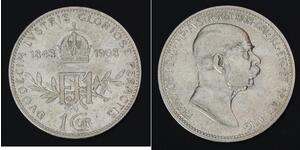(Vendida por $13.0)
Mint Place: Kabul Mint Date: 1933 AD (SH 1312) Denomination: ½ Afghani (50 Pul) Reference: KM-932.1 (there listed as RARE and without valuation!) Condition: Dark and colorful toning in reverse, otherwise a nice lustre AU-UNC! Diameter: 23mm Weight: 4.88gm Material: Silver
em>.
Mohammed Zahir Shah (Pashto: محمد ظاهرشاه, Persian: محمد ظاهر شاه; 16 October 1914 – 23 July 2007) was the last King of Afghanistan, reigning from 8 November 1933 until he was deposed on 17 July 1973. He established friendly relations with many countries, including with both Cold War sides, and modernized the country from the 1950s. His long reign was marked by peace and stability that was lost afterwards.
While staying in Italy for medical treatment, Zahir Shah was overthrown in a surprise coup in 1973 by his cousin and former prime minister, Mohammed Daoud Khan, who established a republic. He remained in exile near Rome until 2002, returning to Afghanistan after the end of the Taliban regime. He was given the title Father of the Nation, which he held until his death in 2007.
Zahir Shah was born on 15 October 1914, in Kabul, Afghanistan. He was the son of Mohammed Nadir Shah, a senior member of the Muhamadzai Royal family and commander in chief of the Afghan army for former king Amanullah Khan. Nadir Shah assumed the throne after the execution of Habibullah Ghazi on 10 October 1929. Mohammed Zahir's father, son of Sardar Mohammad Yusuf Khan, was born in Dehradun, British India, his family having been exiled after the Second Anglo-Afghan War. Nadir Shah was a descendant of Sardar Sultan Mohammed Khan Telai, half-brother of Amir Dost Mohammad Khan. His grandfather Mohammad Yahya Khan (father in law of Amir Yaqub Khan) was in charge of the negotiations with the British resulting in the Treaty of Gandamak. After the British invasion after the killing of Sir Louis Cavagnari during 1879, Yaqub Khan, Yahya Khan and his sons, Princes Mohammad Yusuf Khan and Mohammad Asef Khan, were seized by the British and transferred to the British Raj, where they remained forcibly until the two princes were invited back to Afghanistan by Emir Abdur Rahman Khan during the last year of his reign (1901). During the reign of Amir Habibullah they received the title of Companions of the King (Musahiban).
Zahir Shah was educated in a special class for princes at Habibia High School in Kabul. He continued his education in France where his father had served as a diplomatic envoy, studying at the Pasteur Institute and the University of Montpellier. When he returned to Afghanistan he helped his father and uncles restore order and reassert government control during a period of lawlessness in the country. He was later enrolled at an Infantry School and appointed a privy counsellor. Zahir Shah served in the government positions of deputy war minister and minister of education. Zahir Shah was fluent in Pashto, Persian, and French.
Zahir Khan was proclaimed King (Shah) on 8 November 1933 at the age of 19, after the assassination of his father Mohammed Nadir Shah. After his ascension to the throne he was given the regnal title "He who puts his trust in God, follower of the firm religion of Islam". For the first thirty years he did not effectively rule, ceding power to his paternal uncles, Mohammad Hashim Khan and Shah Mahmud Khan.[8] This period fostered a growth in Afghanistan's relations with the international community as during 1934, Afghanistan joined the League of Nations while also receiving formal recognition from the United States. By the end of the 1930s, agreements on foreign assistance and trade had been reached with many countries, most notably with the 'Axis powers'; Germany, Italy, and Japan.
Zahir Shah provided aid, weapons and Afghan fighters to the Uighur and Kirghiz Muslim rebels who had established the First East Turkestan Republic. The aid was not capable of saving the First East Turkestan Republic, as the Afghan, Uighur and Kirghiz forces were defeated during 1934 by the Chinese Muslim 36th Division (National Revolutionary Army)commanded by General Ma Zhancang at the Battle of Kashgar and Battle of Yarkand. All the Afghan volunteers were killed by the Chinese Muslim troops, who then abolished the First East Turkestan Republic, and reestablished Chinese government control over the area.
Despite close relations to the Axis powers, Zahir Shah refused to take sides during World War II and Afghanistan remained one of the few countries in the world to remain neutral. After the end of the Second World War, Zahir Shah recognised the need for the modernisation of Afghanistan and recruited a number of foreign advisers to assist with the process. During this period Afghanistan's first modern university was founded. During his reign a number of potential advances and reforms were derailed as a result of factionalism and political infighting. He also requested financial aid from both the United States and the Soviet Union.
Zahir Shah was able to govern on his own during 1963 and despite the factionalism and political infighting a new constitution was introduced during 1964 which made Afghanistan a modern democratic state by introducing free elections, a parliament, civil rights, women's rights and universal suffrage.
At least 5 of Afghani little Pul coins during his reign bore the Arabic title: المتوكل على الله محمد ظاهر شاه, "AlMutawakkil 'ala Allah Muhammad Zhahir Shah" which means "The leaner on Allah, Muhammad Zhahir Shah". The title "AlMutawakkil 'ala Allah", "The leaner on Allah" is taken from the Quran, Sura 8, verse 61.
By the time he returned to Afghanistan in 2002, his rule was characterized by a lengthy span of peace, but with no significant progress.
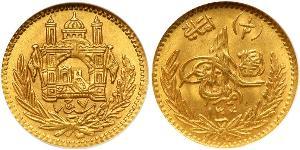
1/2 Amani Emirate of Afghanistan (1823 - ...
grupo tiene 6 monedas / 5 precios
Add coin to this group
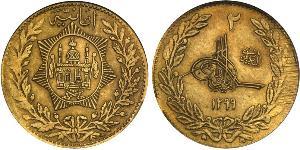
2 Amani Emirate of Afghanistan (1823 - 1 ...
grupo tiene 6 monedas / 5 precios
Add coin to this group
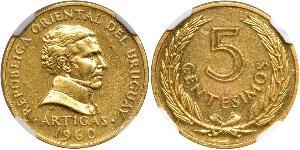
5 Centesimo Uruguay Oro José Gervasio Artigas
grupo tiene 2 monedas / 2 precios
Add coin to this group
1 Corona Imperio austrohúngaro (1867-1918) Plata Franz Josep ...
grupo tiene 25 monedas / 17 precios
⇑
Una de ellas es

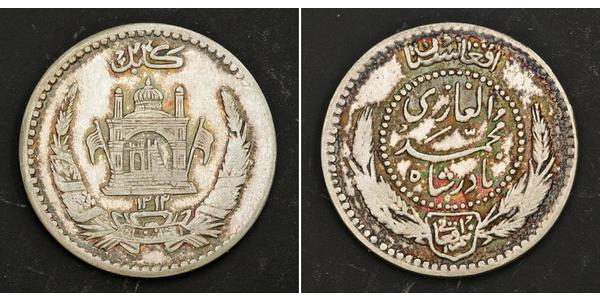







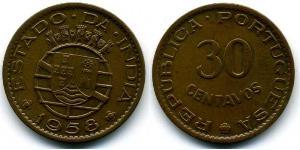
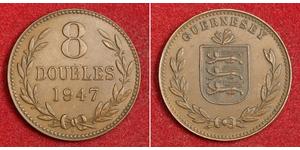

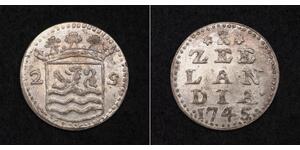
-300-150-AeIKqUpY7NEAAAFhroEy54Nz.jpg)
